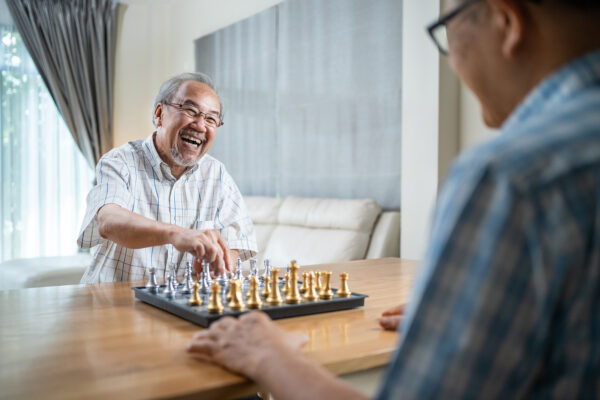How Companion Care at Home Can Help With Stroke Recovery Through Games
February 7, 2025

Anyone who has had a stroke or anyone who has been the caregiver of a stroke patient knows that recovery is a lot of work. There is physical therapy, occupational therapy, speech therapy, and so much more. It can be exhausting for your elderly loved one who had a stroke to continually work on rebuilding his strength, his cognitive functions, and his ability to communicate with those around him.
How Games Can Help a Stroke Patient
Games are great because they can help someone build up or relearn certain functions while being entertaining at the same time. They help your loved one regain his abilities while not feeling like a lot of hard work. When played with others such as family members or a companion care at home provider, they also help create friendships and open your loved one up to accepting support.
Finally, just like everyone else, games boost spirits, make a boring day lively again, and offer the chance to laugh at the silliness that is sure to ensue.
Five Types of Game that are Not Only Fun but Therapeutic
- Charades. This game is great for a larger group of people and can help your loved one not only have a lot of fun but also work on some important recovery efforts. A fun round of this game can help your loved one increase his communication skills, body awareness, and expressive emotions.
- Board games. Does your loved one have a favorite board game? It doesn’t matter if it’s a complicated game like Risk or a family-friendly board game like Trouble, all board games can help your loved one work on skills he needs to relearn. Board games require players to strategize, solve problems, and plan for future moves. For board games with pieces, they can help your loved one work on his fine motor skills as he moves pieces around a board.
- Word games. Games like boggle, scrabble and even crossword puzzles are great for getting those cognitive juices flowing. These forms of games will help your loved one with spelling, vocabulary, and creative thinking. He can play them with his companion care at home provider or play them alone when he has time on his hands to keep his brain sharp.
- Jigsaw puzzles. Jigsaw puzzles are great for working on fine motor skills. You might find that as your loved one gets better, you’ll need to adjust what type of puzzle he can work on. Early puzzles might be larger pieces that form a fairly simple picture and then as those puzzle-playing skills come back, his puzzles can have their difficulty level raised by having smaller pieces and images that need a bit more thought to find the right piece. A puzzle is a nice game to keep around for whenever your loved one is bored or needs to do a quiet activity by himself for a bit.
- Matching games. Games that require your loved one to remember what card was just turned over or what clue was just revealed are great for rebuilding his memory skills. Flipping over cards with his companion care at home provider to search for pairs will stimulate the hippocampus, the area of the brain responsible for creating new memories.
There isn’t a wrong game to play so try a few and find what games are the most fun for your loved one.
If you or an aging loved one are considering hiring Companion Care at Home in Shadyside, PA, please contact the caring staff at In-Home Quality Care today. Serving the Greater Pittsburgh Area since 1990! Call 412-421-5202
